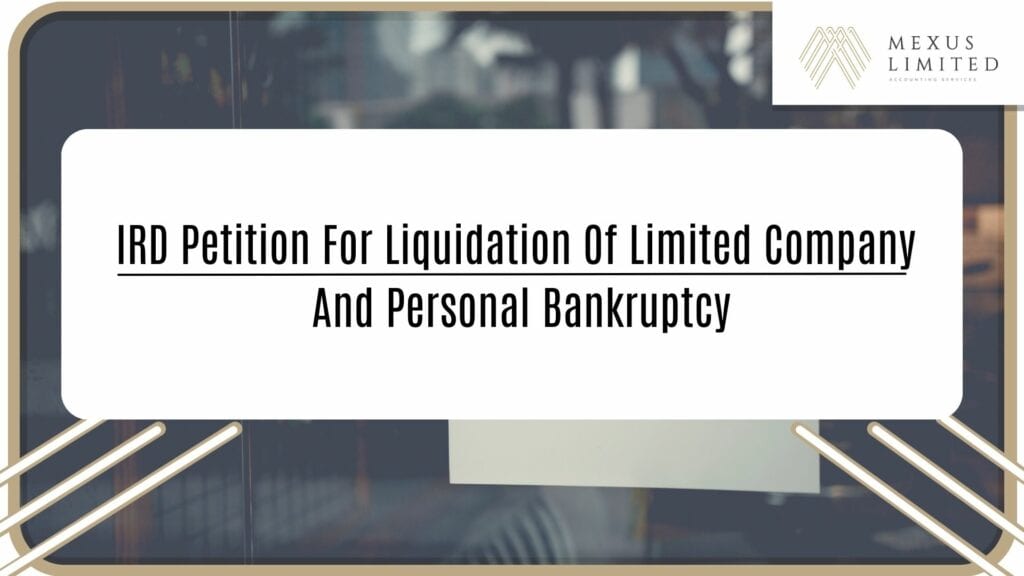IRD Petition for Liquidation of Limited Company and Personal Bankruptcy

When a taxpayer receives a notice of assessment, all taxes must be paid on or before the date specified in the notice of assessment. If the taxpayer fails to pay the tax on time, the entire tax will be deemed to be immediately due (Phase I + Phase II). In order to protect the tax revenue, the Inland Revenue Department of Hong Kong will take statutory measures to recover the overdue tax from the taxpayer.
If a taxpayer considers that he/she is unable to continue his/her limited company, he/she can wind up his/her limited company in one of the following two ways:
Automatic liquidation (shareholders or creditors)
Compulsory liquidation (enforced by the court)
If the limited company structure is simple, the taxpayer can also apply to the IRD for a notice of no objection to the deregistration of the company. Upon receipt of the notice, the IRD will examine whether there are any tax matters to be followed up and whether the company has any tax arrears.
In addition, if a company owes tax to the IRD and the IRD fails to recover the tax, the IRD will apply to the court as a creditor for the compulsory liquidation of the company and apply for the appointment of a provisional liquidator so that the assets of the company can be protected before the hearing. If the taxpayer transfers the assets of the company to other parties and the IRD suffers losses, the liquidator will recover the assets from the taxpayer.
Taxpayers who are unable to pay their debts (including taxes) may apply to the court for a personal voluntary arrangement, which is an alternative to bankruptcy for debt restructuring. The taxpayer may appoint an accountant to propose a repayment plan to the creditor to compromise with the creditor, and the repayment plan may only be implemented with the consent of the IRD. If the court finds that the repayment plan is feasible, the individual voluntary arrangement can take effect.
If a taxpayer is in serious debt and does not pay tax, the IRD can file for bankruptcy as a creditor. From the beginning of the bankruptcy period, the debt, including the tax, will automatically disappear. However, after the bankruptcy period, the IRD can still recover surcharges and penalties for non-compliance with the tax laws prior to the bankruptcy. In addition, if a taxpayer owes tax on income earned during the bankruptcy period, the IRD can collect these new taxes during the bankruptcy period in accordance with normal procedures.
The above information is for reference only. If you have any questions, we welcome your tax inquiries.


